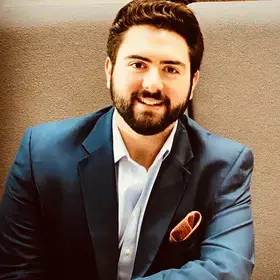At Columbia University’s School of Professional Studies, Hans Kohler (’15SPS, Negotiation and Conflict Resolution):
-
Took classes influenced by the theories of Morton Deutsch, one of the founders of conflict resolution theory
-
Worked at the Office of the United Nations Ombudsman and Mediation Services, participating in cases from around the world
-
Learned how to deal with conflict constructively
-
Gained the skills and expertise to work successfully in the field immediately upon graduation as a mediator, ombuds, and conflict resolution specialist
How did you get interested in Negotiation and Conflict Resolution?
I’m from Brazil, and I moved to the U.S. in 2009 to attend the University of Southern California (USC), where I studied international relations. One day during my senior year, I discovered a class about negotiation and persuasion. I was one of the only non-business students in the class, and I shined in it because the material was a perfect match for me. That was the moment I started looking at grad schools. I was looking for one connected with the founder of conflict resolution, Morton Deutsch, and when I saw that he worked closely with Columbia’s Negotiation and Conflict Resolution (NECR) program, I knew where I had to go.
How has your experience in the program shaped your career?
The program has shaped not just my career, it has shaped who I am today. [Academic Director] Dr. Beth Fisher-Yoshida recommended me for an internship with the United Nations Ombuds, John Barkat, which is where I learned about the role of the ombudsman. Since I speak six languages, I observed many ombuds and mediation cases. I gained the experience and knowledge to look into problems, issues, and conflicts in different ways. That internship was the moment the program clicked for me. The importance of it was learning the theories, models, and experiments and being able to try them out in the field in the next day, and it all worked.
Since I graduated in 2015, I’ve worked with various companies in the Los Angeles area that I continue to work with to this day. In my private practice, I teach people in recovery how to deal with conflicts constructively and how to prevent relapsing. I also work as a mediator for the Los Angeles Superior Court, where, besides mediating cases, students in Dispute Resolution from USC and Pepperdine come to observe and co-mediate for their practicum education. In addition, I do ombuds consulting for multimillion-dollar companies, assisting with work-related issues.
How are you applying your program knowledge to the workplace?
All of my work is based on what I learned in the NECR program. Working with teens and young adults at mental health facilities and rehab facilities, I’m able to teach them how to deal with conflict constructively. I teach conflict resolution theory, cooperation and competition theory, and positions, interests, and needs, which are pivotal to learn in the NECR program. For example, we work a lot with communication and question-asking techniques in order to broaden their perspective on difficult issues they may be having. We also use coordinated management of meaning (CMM), which is particularly helpful for their own self-reflection. It gives them perspective so that they can go through the world with a more meaningful view of the unmet needs behind their positional statements.
Same thing with workplace-related issues. I deal with them using ADR (alternative dispute resolution) techniques, such as mediation and ombudsing, and also by using conflict resolution approaches into changing interactions from competitive into cooperative. People need to feel heard and acknowledged, and people like me help others feel that way. As an ombuds, I try to create a safe space where one can share and be open to resolve issues constructively. After a while working here in L.A., I’ve noticed that people need more safe spaces where they feel heard without prejudice or judgment.


